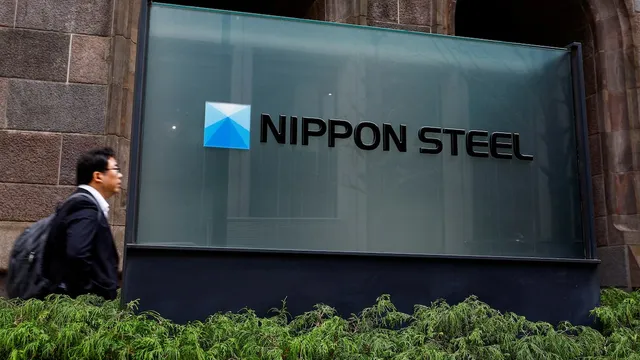
Nippon Steel's takeover bid for U.S. Steel is doomed to fail
2025-01-02 07:36- Nippon Steel's bid for U.S. Steel includes a proposal to give the U.S. government veto power over production cuts.
- The acquisition has raised concerns from the Committee on Foreign Investment in the U.S. about its effect on American steel output.
- Political opposition to the deal complicates its approval, despite some local workers' support for the acquisition.
Express your sentiment!
Insights
In late 2023, Nippon Steel, a Japanese steelmaker, made a significant proposal to the Biden administration regarding its bid to acquire U.S. Steel, an iconic American steel company. The proposal included granting the U.S. government veto power over any potential cuts to U.S. Steel's production capacity. This move aimed to alleviate concerns raised by the Committee on Foreign Investment in the U.S. regarding the impact of the acquisition on American steel output. Market reactions were notably positive, with U.S. Steel's shares increasing significantly on news of the proposal, reflecting investor optimism despite the ongoing debate surrounding the deal. The acquisition bid, valued at approximately $15 billion, encountered political obstacles as both President Biden and former President Trump expressed opposition to the takeover, citing job preservation as a priority. On the other hand, many local workers in Pittsburgh have shown support for Nippon’s acquisition, believing it to be crucial for job security and the economic future of steel-making in the region. A government panel reviewing the deal failed to reach a consensus regarding its national security implications, necessitating a decision from President Biden. Stakeholders, including local community leaders, argued that approving Nippon’s takeover is vital to safeguard thousands of jobs. However, the United Steelworkers union remains wary, advocating for strict scrutiny and preferring that U.S. Steel remain domestically owned. Complicating matters further, dissension exists among workers regarding the best route to job security, with some fearing the ramifications of foreign ownership. Meanwhile, rival steelmaker Cleveland-Cliffs, which lost the bidding contest against Nippon, has been campaigning against the deal, collaborating with some environmental groups who warn that increased production could hinder efforts for sustainable practices. The outcome of this high-stakes negotiation between foreign investment and national interests remains uncertain, as both economic metrics and political sentiments weigh heavily on the Biden administration's final decision.
Contexts
The heart of the U.S. steel industry faces a monumental crossroads as Nippon Steel, Japan's largest steel manufacturer, sets its sights on acquiring U.S. Steel for $14.9 billion. With the offer reflecting a desire to bolster domestic production capacity and provide tariff-free steel for the North American market, supporters herald this potential partnership as a boon for modernization and efficiency. However, the prospect of foreign ownership sends shivers down the spines of union workers and policymakers alike, raising questions of national security and job security amidst fears of industry consolidation. As U.S. Steel stands on the edge of transformation or turmoil, the voices of dissent grow louder. Many contend that the heart and soul of American industry should remain in American hands. President Biden, backed by United Steelworkers, recently emphasized the importance of keeping U.S. Steel domestically owned and operated, fueling a national dialogue that questions the meaning of economic identity in a globalized marketplace. While Nippon Steel argues its intention to revitalize the steelmaker and preserve American jobs, skepticism runs high among unions fearing a diminishment of workers' rights and protections. The Committee on Foreign Investment in the United States (CFIUS) is under pressure to evaluate this controversial acquisition thoroughly. Some members of Congress believe that allowing a foreign entity to control a historic American brand would be akin to rolling out the red carpet for adversarial economic practices. Yet, a decision to block the deal may resonate poorly within allied nations, effectively closing off U.S. markets to foreign investments and leaving essential supply chains vulnerable to manipulation. As the crucial decision looms ahead, the industry anticipates long-term implications of either an empowered U.S. Steel or a future defined by consolidation with domestic rivals like Cleveland-Cliffs. The narrative of American steel, once a towering symbol of industrial strength, now hangs in the balance, influenced by the delicate interplay of national pride, job security, and the realities of global economics.